Food Waste
Chef Nicole Tufts teaches people how to cook with food waste
One-third of food is wasted worldwide
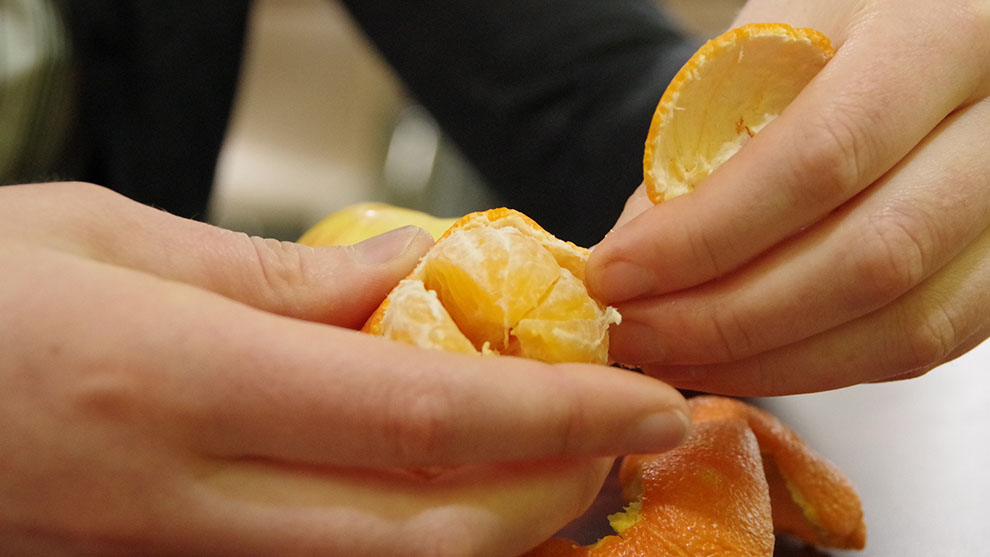
caption
Even citrus peels can be turned into a candied snack.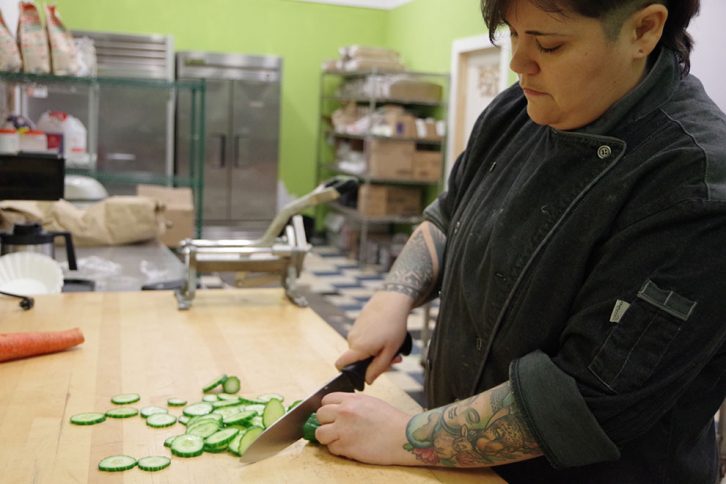
caption
Nicole Tufts says all it takes is a little creativity to work with food waste.For Nicole Tufts, cooking with food waste is second nature. She’s the owner of and chef at Riot Snack Bar, a restaurant on Quinpool Road that opened last September.
At Riot, things like carrot tops and kale stems are put to good use.
“My general rule is if it’s green, it’s a go,” says Tufts. “So, (it’s) like kale stems. You can pickle them; you can grind them up.” Related stories
On one hand, it’s a question of simple economics. As the owner of a restaurant, she says she is constantly aware of how much money is spent on food. So it’s only natural to find ways to use everything that’s edible.
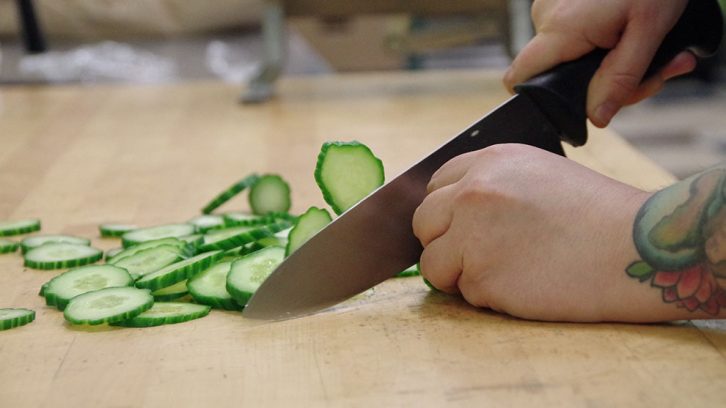
caption
In the kitchen at Riot Snack Bar, every part of a food item gets used, says chef Nicole Tufts.Reducing food waste goes beyond saving money. It also addresses a global problem.
According to the Food and Agriculture Organization of the United Nations, one-third of food produced worldwide for consumption never gets eaten. Food production requires resources such as land, water and energy, which means that it’s a lot more than just food that ends up being wasted.
According to a 2014 report by VCM International, a consulting company that works with the food industry to help it reduce waste, Canada loses $31 billion in food waste every year. Forty-seven per cent of that waste happens at the household level.
Tufts says it doesn’t have to be this way. A large portion of what most people would throw away is actually fine to use, she says. But often people don’t know how to take full advantage of the food they buy.
“You can get a whole other couple of meals out of things that you would usually put in the garbage,” she says. “It’s going in a landfill and becoming compost when it could be nourishing your body.”
This is why two local non-profit groups, Fusion Halifax and FOUND Forgotten Food, decided to partner with Riot Snack Bar to offer workshops on cooking with food waste.
After a sold-out trial workshop in November, the WasteFULL cooking with food waste workshop is back for a second session on Monday.
“(We) wanted to give it an interesting spin, so focused on desserts,” says Naomi Hill, director of sustainability with Fusion Halifax.
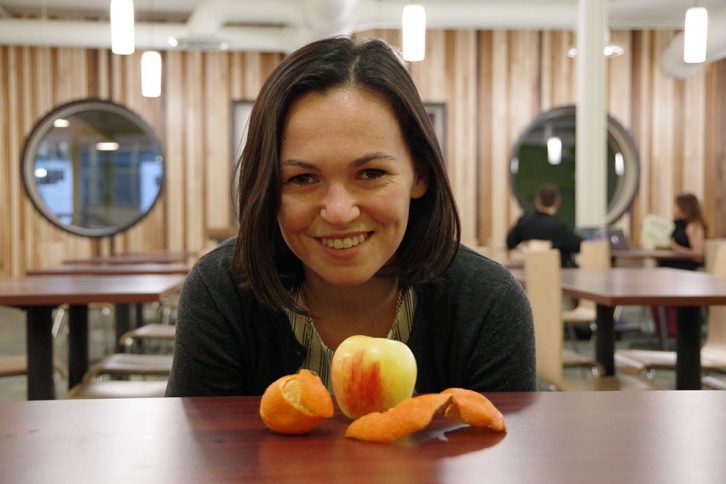
caption
Naomi Hill says old fruit can be turned into delicious desserts.Hill says it’s easy to make desserts using food waste: old bananas, apples and avocados may be unappealing to eat by themselves, but incorporated into desserts, they look great and taste delicious. She cites candied citrus peels as an example.
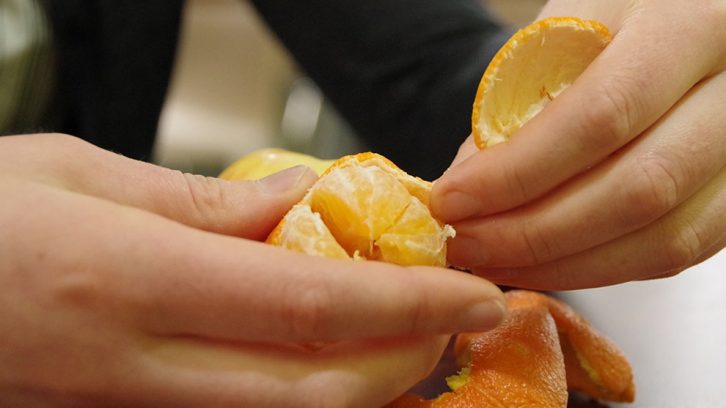
caption
Even citrus peels can be turned into a candied snack.Tufts was happy to get involved. She sees the workshops as an opportunity to share knowledge about creative ways to use food. She says cooking with food waste is a lot easier than people think.
“Look at your fridge. What’s going bad? Type it up in your computer and it will bring you up a recipe; I can almost guarantee it,” Tufts says.
The WasteFULL workshop is held at Riot and costs $15, which includes a serving of the desserts made. There are still a few spots available for Monday and organizers hope the workshops become monthly events.

